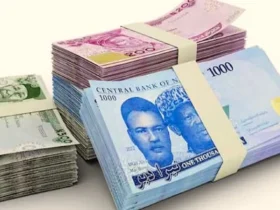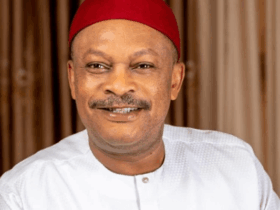Nigeria at 65: How Did a Nation So Rich in Potential Become This Fractured?

Historians widely agree that, like many contemporary African nations, Nigeria‘s existence is largely a product of European colonial ambitions.
There is a well-known African saying: “The downfall of a nation begins within its households.” At 65 years old, Nigeria exemplifies this truth. While it impresses on the global stage, it struggles profoundly within its own borders. Nigerians excel in prestigious universities, innovative tech hubs, vibrant film industries, and cutting-edge research centers worldwide. Yet, domestically, this so-called African powerhouse often appears weakened-strong in reputation but fragile in reality.
“Governance in Nigeria often views its people as obstacles rather than citizens deserving service. However, leadership grounded in genuine care is not mere sentiment; it is a strategic necessity. A government that ensures access to education, healthcare, and housing builds its legitimacy.”
This paradox captures the essence of Nigeria’s post-independence journey: the nation’s symbolic importance contrasts sharply with its lived experience. Each generation seems aware of the reforms needed, yet many remain complicit in perpetuating harmful practices. Dysfunction is passed down like an inherited legacy, while decay is disguised as progress. Governments repeatedly leave citizens nostalgic for past failures they once condemned. The nation mourns its present and fears its future. What Nigeria faces is not only a leadership crisis but a profound breakdown in its structures, culture, and philosophy.
The country’s decline is evident in international assessments. In the 2024 United Nations Human Development Index, Nigeria ranks 161st out of 193 nations, trailing behind countries like Ghana, Kenya, and even conflict-affected Syria. Despite abundant natural resources, over 133 million Nigerians live in poverty. Youth unemployment stands at a staggering 33 percent, a critical concern in a nation where nearly 70 percent of the population is under 30 years old.
Corruption remains deeply entrenched, with Transparency International placing Nigeria 145th out of 180 countries in its 2024 corruption perception index. Infrastructure is deteriorating, and essential services such as electricity, clean water, and healthcare have become privileges rather than rights. Instead of fostering unity, the state institutionalizes division by categorizing citizens as “indigenes” or “settlers,” prioritizing identity over merit in access to opportunities.
Governance at all levels is marked by confusion and inefficiency. Institutions are established without clear frameworks, funds are expended without strategic investment, and outputs rarely translate into meaningful improvements. While elections bring new faces, systemic change remains elusive. Without a fundamental shift in mindset, electoral victories will only perpetuate existing dysfunction under new guises.
Politics in Nigeria is a reflection of its broader culture-one focused on short-term survival rather than sustainable development. From corrupt elites embezzling public funds to citizens who trade votes for personal gain, complicity is widespread. The fixation on political office as the sole path to success stifles innovation across business, arts, and sciences. Activism often confuses volume with impact, and social media frequently replaces strategic action.
Nonetheless, pockets of progress exist. For instance, Edo State’s digital education initiatives, Lagos State’s enhanced tax collection systems, and Enugu State’s expansion of health insurance demonstrate that meaningful change is achievable when leadership is aligned with clear vision. However, these remain exceptions rather than the rule.
At this milestone, Nigeria can no longer settle for superficial reforms. A deliberate transformation is required-one that builds systems rewarding excellence, fosters trust, and harnesses the nation’s human capital for collective advancement.
Key areas for reform include:
- Institutional overhaul: The judiciary must be shielded from political interference; electoral funding should be transparent; and the civil service must prioritize competence over favoritism.
- Economic diversification: Overreliance on oil has exposed Nigeria to economic instability. Investments should pivot toward manufacturing, digital technologies, and agricultural value chains to create jobs for the burgeoning youth population.
- Decentralization: Managing a country of over 200 million people from Abuja alone is impractical. Genuine federalism, empowering states with resource control and accountability, offers a more effective governance model than continued centralization.
- Civic engagement: Leaders emerge from the society that nurtures them. Nigerians must reject vote-buying, the glorification of ill-gotten wealth, and tolerance of mediocrity. Sustainable change requires active citizen participation, not just political promises.
Rebuilding Nigeria demands more than policy adjustments; it requires restoring trust. Today, citizens routinely pay bribes for essential documents and services. Governance often treats people as hurdles rather than partners. Yet, leadership grounded in care is a pragmatic strategy, not mere idealism. Governments that guarantee education, healthcare, and housing earn the trust and legitimacy necessary for stability.
Training public officials to combine empathy with administrative skills can restore dignity in everyday interactions.
Trust cannot be fabricated through slogans or propaganda. Nigerians are weary of empty rhetoric. They seek meaningful results and authentic leadership characterized by integrity and effective delivery, not personality cults or marketing campaigns.
At 65, Nigeria is not a failed state but a nation still fighting for its future. The challenges are daunting, but so is the potential for renewal. The same country that exports talent worldwide can redirect that brilliance inward. However, this transformation will not occur spontaneously; it must be demanded, carefully planned, and executed.
Consider South Korea, which, 65 years after the devastation of the Korean War, has become a global economic powerhouse. Rwanda, despite its tragic past, has rebuilt its institutions with discipline and foresight. Nigeria has no excuse to lag behind. Age should bring wisdom, not repeated mistakes.
As Nigeria marks its 65th anniversary, this should be more than a ceremonial occasion filled with speeches. It must serve as a moment of reflection and resolve, calling on both leaders and citizens to reconstruct a nation that truly reflects the greatness of its people. The choice is clear: remain trapped in dysfunction or forge a future worthy of the title “Giant of Africa.”
At 65, Nigeria is simply too mature to remain broken.








Leave a Reply